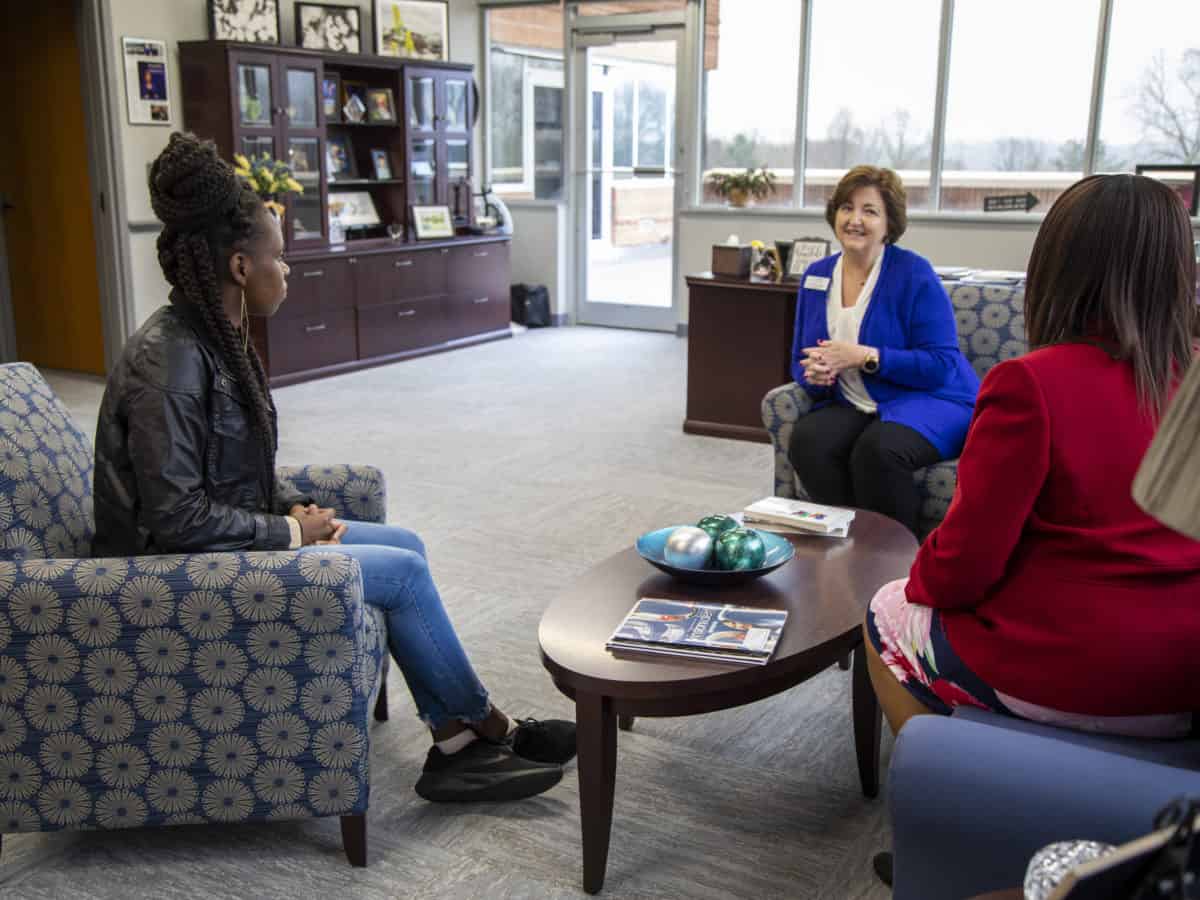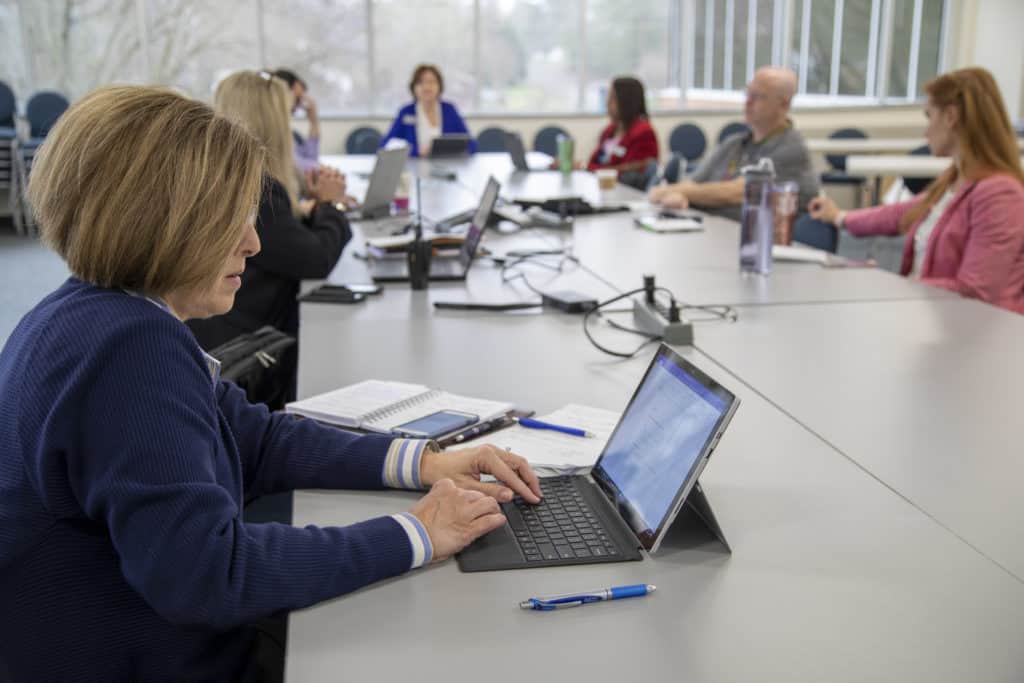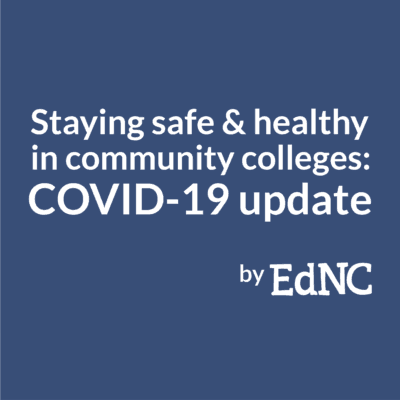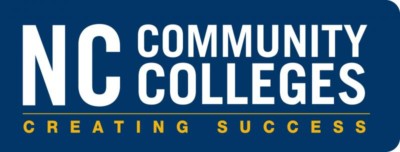
Nation here. I’ve spent much of the past week speaking with community college leaders and personnel in hopes of understanding the changing landscape created by COVID-19. In the weeks ahead, we’ll share many of the lessons of leadership we gather from these conversations. First, we’ll look at how Forsyth Technical Community College is dealing with COVID-19.
COVID-19 has created unprecedented turmoil for all of us, but Forsyth Tech President Janet Spriggs wants our leaders to remember the most vulnerable when they make policy decisions.
Since Gov. Roy Cooper announced the closure of public K-12 schools, institutions of higher learning have also been working to adapt to the pandemic. Over the past week, all 58 community colleges across North Carolina have made changes. Most began by extending spring break or temporarily closing campuses.
By the end of last week, all of the colleges moved away from face-to-face instruction.
When I caught up with Spriggs, she immediately sounded the alarm over the inequities in our system that this crisis lays bare.
“This is absolutely an equity issue,” she said. “This situation is stressful and challenging for those of us who do have resources and a greater amount of privilege. Imagine what it is like for those who are already struggling to pay the electric bill, buy medicine, or put food on the table for their families.
“Low-income students will be hit harder by the effects from this pandemic. The majority of our students work either part-time or full-time, so we know many of them are already among the hardest hit financially because our bars and restaurants have closed and so many other businesses are scaling back or suspending operations.”
With an equity lens, Spriggs and her team are zeroing in on three primary themes in the weeks ahead:
- Meeting essential needs in a responsive fashion.
- Delivering education remotely — and not just online.
- Reminding people of the importance of social distancing, while fighting social isolation through an initiative called Forsyth Tech Cares.
Essential needs
Forsyth Tech, like all of the colleges whose leaders I’ve talked with, has moved to meet the emergency needs of its students. The axiom we’ve all heard about community college students is that so many of them are a blown alternator away from a halt to their educational career. This has been a motivator for systemic approaches like Single Stop — and, more recently, Finish Line Grants.
Through the Forsyth Tech Foundation, emergency assistance funding has already been made available in a variety of formats — including gift cards for restaurants and food delivery services that remain open.
Academics remains the core function of Forsyth Tech, but Spriggs pointed out that for students who have emergency needs, education might not be a primary concern until the emergency itself is resolved.
“We have dedicated staff, special funding and a wide resource net to connect students to the support they need,” she said, “and we have developed a more seamless process for them to access the support they need during this crisis.”
Forsyth Tech is working on additional community-wide partnerships to address these needs.
Remote, not just online, education
All of the college leaders I spoke with were worried about internet access for their students. Lisa Chapman at Central Carolina Community College said her college is moving Wi-Fi access points to the outer edges of buildings in an effort to provide coverage to the parking lot. Some rural colleges are keeping their libraries open even as they move to execute social distancing.
Spriggs zeroed in on foundational inequities: “I believe words matter, and, in my opinion, if we use the term ‘online education,’ a term we have heard a lot through the COVID-19 pandemic, we are starting at a point of inequity. Online education, or classes delivered over the Internet, are simply not a good option, and not a viable option for many students, particularly low-income and underserved students. If we just make all our classes available via an online learning platform, we are not providing an equitable learning experience for all students. In fact, we are increasing equity gaps.”
Forsyth Tech, like other institutions, is moving to increase Wi-Fi access points on campus and provide computers when it can, and it is exploring options like making hotspots available. Spriggs pointed out that funding remains a challenge to provide those sorts of solutions at scale, so the college has gone back to the drawing board to figure out how to meet student needs.

The college is using its extended spring break to iron out the details, but it intends to create packets of printed coursework for students in need, identify the campus locations closest to each individual student, and provide these bundles for pickup at flexible times.
When I asked Spriggs how her team developed this strategy, she said, “The key was our willingness to imagine without boundaries how to love and serve our students through this unprecedented, extremely challenging, national crisis.”
Meeting the challenge of social isolation — while social distancing
Medical experts have focused on the need for social distancing to combat the spread of COVID-19, but others have begun to raise fears about the mental health effects of social isolation. The college has launched Forsyth Tech Cares as part of its response.
The college had previously explored research on the mental health effects of loneliness, but the leadership team quickly moved to address the issue as COVID-19 forced social distancing.
Spriggs said she and her team have been in constant contact with students through calls, text messages, and social media to gain a sense of how they are doing. Some students who needed tutoring and extra help were fearful about whether they could persist to graduate during the pandemic without assistance.
One crystallizing moment for Spriggs came when she was scrolling through social media. She shared that she read a post by a Forsyth Tech graduate who is now in her first year at a four-year school.
“Her college closed, and she had to leave to head back home to Winston-Salem,” Spriggs said. “She wrote, very eloquently, about how scary this whole situation is for her and how worried she is about the future, even wondering if she might be able to get back to UNC-W and finish her bachelor’s degree. It was heartbreaking to read how afraid and anxious she was feeling.”
Enter Forsyth Tech Cares.
The initiative is designed as a comprehensive approach to connect students, staff, and faculty to the resources each of them needs, including both the academic and financial.
One novel aspect is a focus on providing at least one personalized connection point to every Forsyth Tech student every week at a minimum. The staff will do the outreach across a variety of platforms, but they are still working out the details on logistics.
“On a practical level,” Spriggs said, “this means that a real live person is going to ask them if they are doing OK, listen to what is going on with them, see if they need help, and help them get whatever it is they need to weather this storm we are all in together. It is a proactive way to not only connect them to resources, but to reach out and provide them with a personalized touch.”
Looking ahead
From the time I met Spriggs, she has always exuded optimism and a deep faith in the ability of community colleges to meet needs, of students to overcome challenges, and of communities to rally together.
Spriggs closed our conversation by saying, “We are used to taking something bitter and making it sweet. I am optimistic because I already see us coming together, thinking differently and creatively, and being willing to do whatever it takes to love and serve our students and each other. We created Forsyth Tech Cares to put some hope back in our students’ lives, and I believe we just might even increase our connections with them. Perhaps we’ll even help them persist more this term!”
We will be monitoring the outcomes of Forsyth Tech Cares as well as the college’s other approaches to providing remote education.
If you have questions about COVID-19, or have thoughts on solutions for our community colleges, please share them below.




